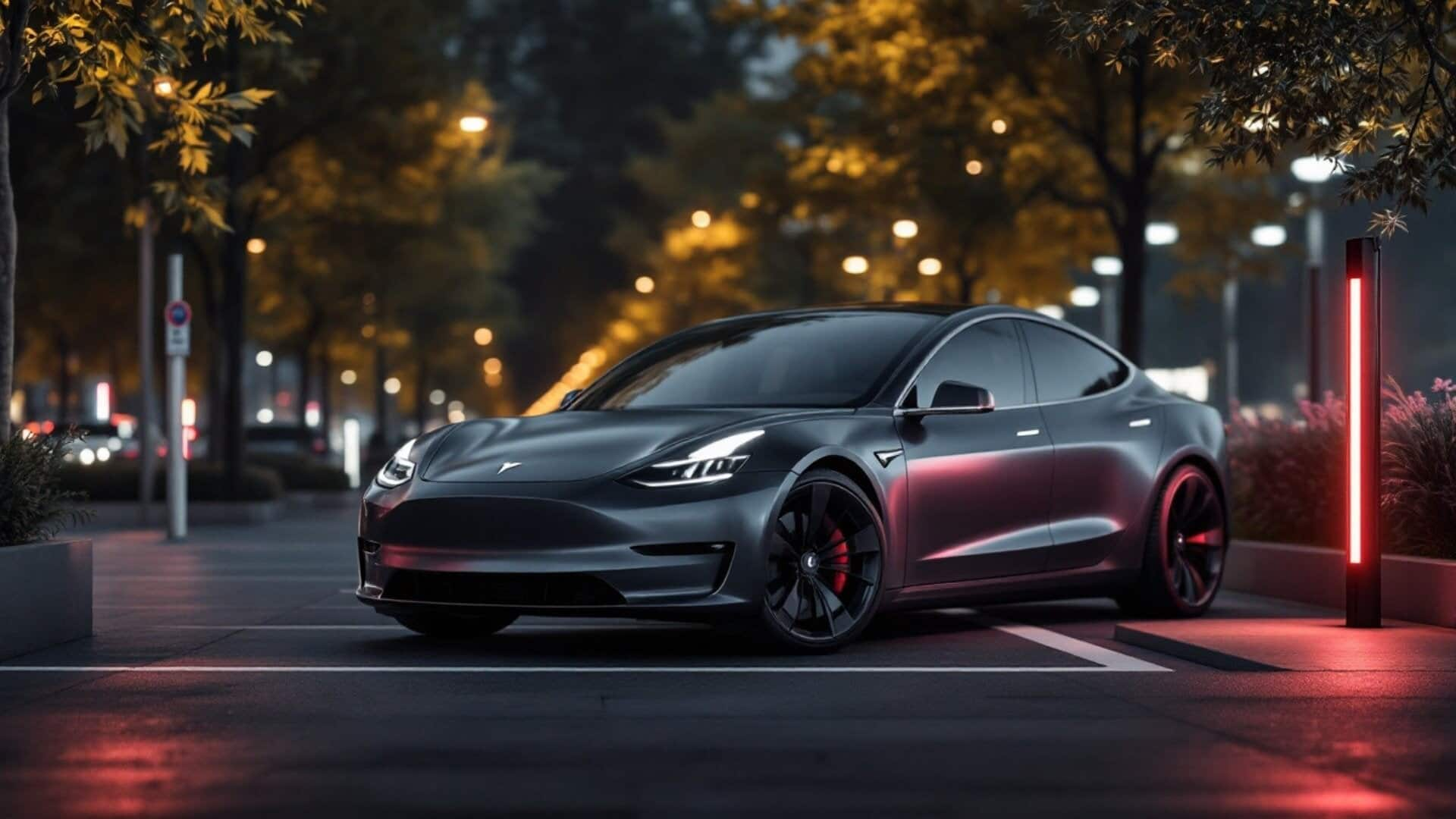
Tesla could earn $1B thanks to new EU emissions rules
What's the story
Tesla is poised to reap significant financial benefits from its participation in a new emissions pooling initiative, potentially earning over $1 billion in 2025. This development comes as various automakers scramble to comply with stringent European Union (EU) carbon emissions regulations. According to analysts at UBS, Tesla's ability to pool its electric vehicle fleet with other manufacturers will allow these companies to average out their emissions, helping them avoid substantial fines.
Strategic positioning
Tesla's advantage in the new regulatory landscape
The EU has implemented strict targets for carbon dioxide emissions, requiring automakers to reduce their overall fleet emissions significantly. For 2025, the average emissions limit is set at 93.6 grams of CO2 per kilometer, a reduction from the previous limit of 106.6 grams. Failure to meet these standards could result in penalties amounting to billions of euros for non-compliant manufacturers. Hence, Tesla's position in the EV market allows it to assist other companies in meeting these requirements.
Proactive measures
Pooling fleets: A strategic move for automakers
The automakers who have partnered with Tesla include prominent names such as Toyota, Ford, Stellantis, and Mazda. By pooling their emissions with Tesla, these companies can leverage Tesla's lower average emissions to offset their own higher numbers. This collaboration is expected to be mutually beneficial; while Tesla stands to gain financially from the arrangement, the participating automakers can avoid hefty fines and improve their compliance standings.
Revenue forecast
Tesla's potential earnings from fleet pooling
UBS analysts estimate that if Tesla fully monetizes its carbon credits and long CO2 position, the total compensation could exceed $1 billion. This revenue stream is particularly crucial for Tesla, as sales of carbon credits accounted for about 3% of its total revenue in the first nine months of 2024. The financial windfall from this initiative could further bolster Tesla's already impressive growth trajectory.
Industry resistance
Automakers push back against EU's stringent rules
Several automakers have been vocal about their displeasure with the stringent EU rules, especially with the falling demand for EVs. The EU industry is slowly heading toward a 2035 rule that requires all cars to be fully electric or powered by combustion engines running solely on e-fuel. Analysts have also noted that while pooling emissions can significantly narrow the gap for automakers struggling to meet targets, it does not guarantee that fines will be entirely avoided.